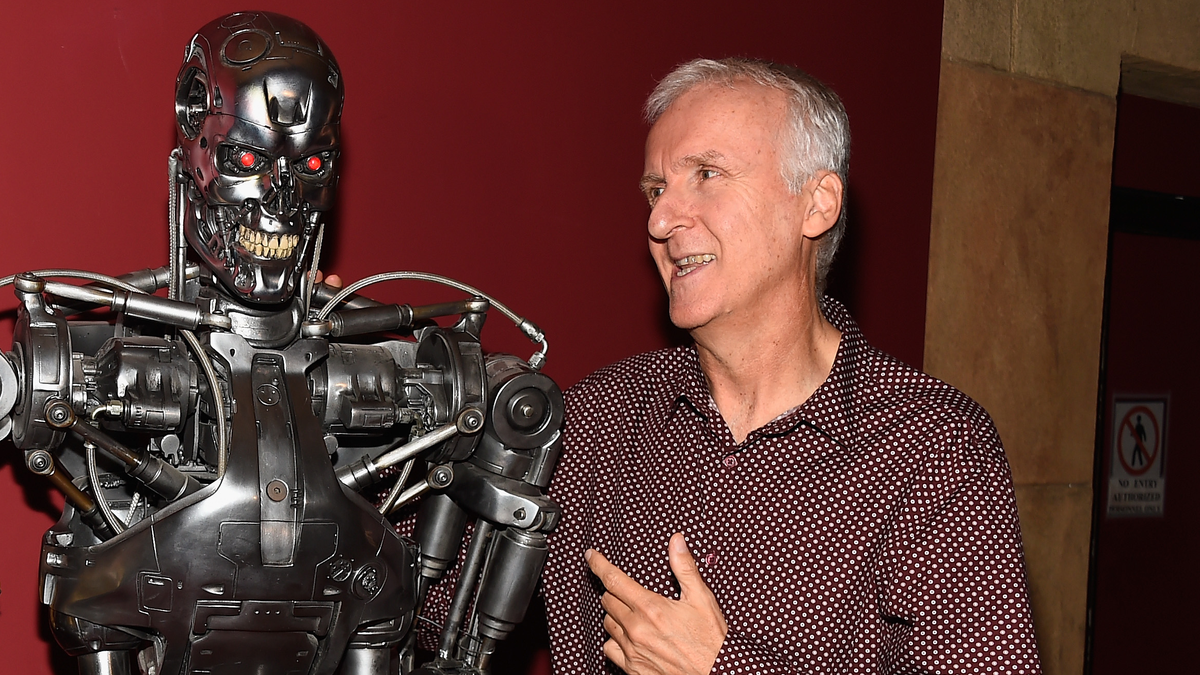
Fears over the increasing and encroaching role of large language models and other generative AI tools in media have become the heart of Hollywood’s current labor struggle, as the WGA and SAG-AFTRA have both centered safeguards for human workers in the face of an industry eager to jump on the latest tech bandwagon. But while director James Cameron is likewise concerned, he’d rather think about avoiding Terminator made real.
“I just don’t personally believe that a disembodied mind that’s just regurgitating what other embodied minds have said—about the life that they’ve had, about love, about lying, about fear, about mortality and just put it all together into a word salad and then regurgitate it,” Cameron told CTV News when asked about large language models like ChatGPT and their ability to convincingly write screenplays. “I don’t believe that’s ever going to have something that’s going to move an audience. You have to be human to write that. I don’t know anyone that’s even thinking about having AI write a screenplay… let’s wait 20 years, and if an AI wins an Oscar for best screenplay, I think we’ve got to take them seriously.”
Advertisement
But while Cameron is more hesitant to directly align himself with the current concerns about AI in Hollywood—even in the wake of SAG-AFTRA’s claims that the AMPTP offered its members a day’s pay in exchange for having their likenesses scanned and archived in perpetuity to generate machine-made background actors—he goes on to note he has much wider-reaching concerns about the technology. Like, you know, apocalyptic machine conflicts.
“I think that we will get into the equivalent of a nuclear arms race with AI, and if we don’t build it, the other guys are for sure going to build it, and so then it’ll escalate,” Cameron continued. “You could imagine an AI in a combat theater, the whole thing just being fought by the computers at a speed humans can no longer intercede, and you have no ability to deescalate.”
Advertisement
Advertisement
We’re not at the scope of usage Cameron is anxious about yet, but we don’t have to imagine what AI’s role in the military could look like hypothetically—it’s already starting to happen. The U.S. Department of Defense is already investigating moves to create an archive of military data to use as part of what it sees as an escalating digital arms race with other nations, and the eventual weaponization of such technology. Not that Cameron himself hasn’t already thought about that extensively in his own filmmaking career already, of course.
“I warned you guys in 1984 and you didn’t listen,” the director not-so-jokingly added. But you know, hopefully we get protections for actors, writers, directors, and other creatives against generative AI replacements before we have to worry too much about someone making Skynet. Hopefully.
Want more io9 news? Check out when to expect the latest Marvel, Star Wars, and Star Trek releases, what’s next for the DC Universe on film and TV, and everything you need to know about the future of Doctor Who.
Services Marketplace – Listings, Bookings & Reviews